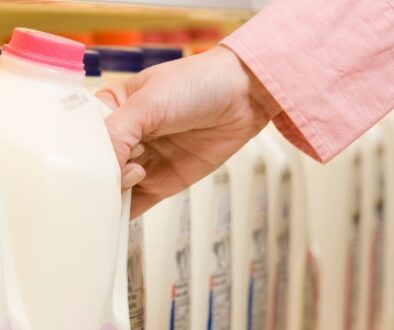Sustainability Becomes More Sustainable in Dairy
Consumers increasingly are prioritizing sustainability. Almost one-fifth (19%) of consumers said they had been buying more sustainable products in the past year, according to a 2015 survey by The Hartman Group, Bellevue, Wash., titled “Transparency 2015 — Establishing Trust With Consumers.”
And at least some dairy companies are taking notice, recognizing that environmentally friendly policies can make them greener in more ways than one.
DFA goes ‘green’
Dairy Farmers of America (DFA), Kansas City, Kan., has undertaken myriad efforts at its farms, manufacturing plants and offices, starting with energy conservation, noted David Darr, president, farm services and vice president, sustainability. DFA always looks for opportunities for continuous improvement within existing operations, with teams of staff focused on such initiatives, he said.
When undertaking capital projects to improve or expand its operations, DFA always has conservation in mind. For example, it adds energy-efficient LED lighting in new spaces despite the initial cost, Darr said. And DFA conserves energy at its farms and plants through improvements such as anaerobic digesters.
“We’re able to reduce emissions and power farms or plants with renewable energy,” Darr said. “It lowers our brown electricity profile. And it is a way to partner with our member farms in terms of helping to create a viable business model.”
DFA also examines recycling possibilities throughout its facilities, particularly in office locations — first and foremost, its new headquarters building in Kansas City, Darr said. As the company moved into the new location, DFA cut down considerably on the numbers of printers used and added recycling containers at every workstation. It also placed compost bins in cafes and other dining areas, Darr said.
At manufacturing plants, DFA focuses on recycling corrugated cardboard from shipping containers and water that’s “pulled off of the milk, looking for opportunities to repurpose or reuse that water within the plant before it’s discharged,” Darr explained. In addition, DFA attempts to ensure that its packaging is constructed from recyclable materials and that as little material as necessary is used in the first place.
“We put an emphasis on the packaging for consumer-branded
products and a focus on reducing the packaging that we use,” he said. “But we balance that with the desires and interests of customers in terms of the types of products they want in their homes.”
To reduce its transportation footprint, DFA has transitioned trucks to biodiesel fuel at one facility in Maine, worked with partners in Texas to build a network for compressed natural-gas fueling stations, and taken advantage of various states that allow high-gross-weight vehicles on state roads to haul a higher volume of milk in fewer tractor-trailers, Darr said.
“That allows us to do it more efficiently and takes trucks off the road,” he explained.
Hilmar finds purpose in sustainability
Water conservation has been a major focus of Hilmar Cheese, Hilmar, Calif., especially given its western location. “Water is certainly a big story around here,” said CEO David Ahlem. “We have invested a lot of capital to reuse and recycle water.”
Captured through filtration systems, water is used to wash plants and for landscaping and irrigation of neighboring fields.
“Typically, those folks are growing cows, so they use it to make milk, and then that cycle starts all over again,” Ahlem noted.
Hilmar is pursuing greater energy-efficiency by installing a co-generation facility in its new plant in Turlock, Calif., which uses waste heat to reduce consumption, Ahlem said.
“We’re minimizing the use of resources long-term,” he said.
Sustainability in architecture has been another focus. When Hilmar opened its headquarters innovation facility, the company attained LEED platinum status for the building. Ahlem said it is “one of the few dairy facilities” to achieve that status.
Hilmar publishes an annual sustainability report to chronicle its efforts and expound upon its philosophy.
“Some people ask, ‘Why do you do this stuff?’” Ahlem said. “Our purpose statement is to improve lives around the world. These efforts are a way to do that. … Some of them have immediate financial paybacks. Many of them do not. But they do make long-term business sense.”
Hilmar publishes the report to hold itself accountable and tell these stories. Ahlem encourages others in the industry to do so as well.
“If you’re not measuring it, you’re less likely to pay attention,” he said. “We have responsibilities larger than ourselves, to be stewards of our community and the environment in which we operate.”
Keep up to date on current industry news here.
Source: DairyFoods.com




